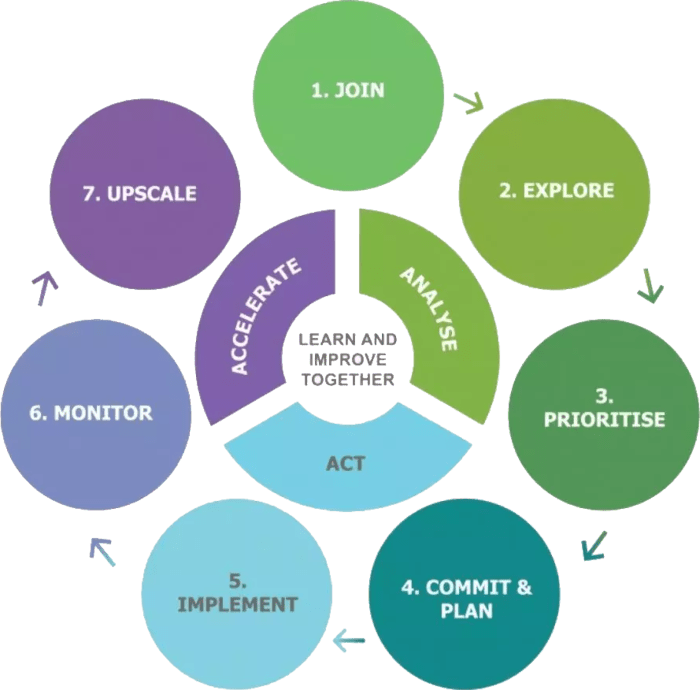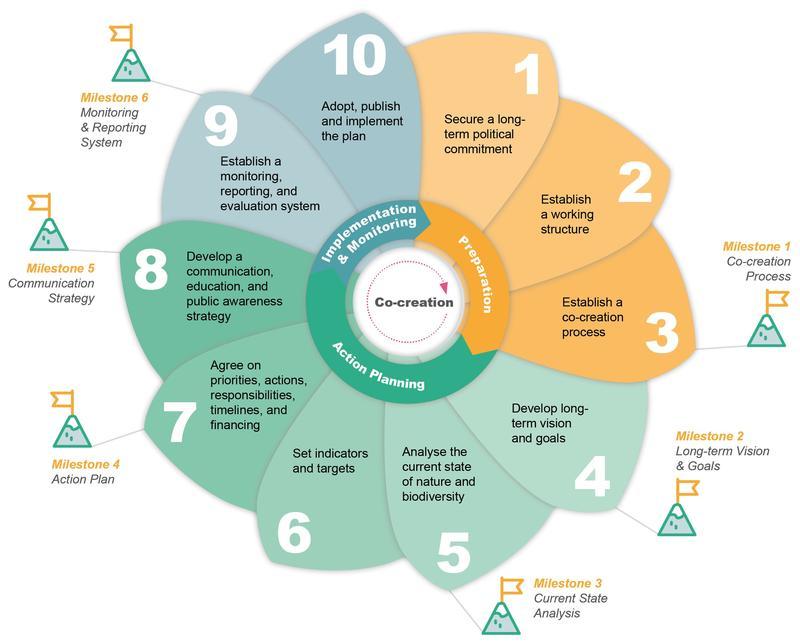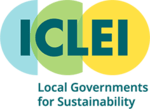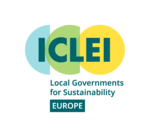
Methodology
UrbanByNature 7-steps approach & Urban Greening Plans Methodology


The UrbanByNature 7-steps integrated management cyclical approach, based on the international standard ISO 37101 “Sustainable development in communities”, was set up to support local governments, groups of technicians, associations, privates and public entities, address the full cycle for analysing barriers and opportunities, achieving action, and acceleration of action. Capacity-Building is at the heart ofovercoming current policy, governance, finance and technical challenges, hindering the implementation of NbSfor sustainable development.
Our curriculum reflects a co-creative approach, in which not only principles and methods are shared, but participants work together to actively engage in making cities and towns more resilient and in transforming their neighbourhoods.
During approximately one year in each stream (meaning, a set of region and context-specific webinars), you are guided through our programme in seven steps, listening into thematic modules that cover a range of aspects relevant for planning and realising green and blue cities, better adapted to heat, water scarcity, air, soil and water contamination challenges, biodiversity loss and climate change related challenges. We combine fieldtrips, on-site multi-stakeholders workshops, face-to-face events, online webinars, interactive online learning, problem-solving exercises, tailored training on technical design and construction guidance, and upscaling and replication services for cities, urban, peri-urban and rural sites, adapted to each climatological, cultural and socio-economical context.
The UrbanByNature Integrated Management Approach encommended to address the full cycle for analysing barriers, achieving action, and acceleration of action for NbS fits under the umbrella of key European Union planning policy instruments, such as the Urban Greening Plans (UGPs), set for reversing the loss of biodiversity and reaching the goals of the 2030 EU Biodiveresity Strategy, which requires a new approach to city planning. UrbanByNature is there to support this process, Urban Greening Plans are a framework for municipalities and cities to bring nature (back) into cities and provide urban areas with a tool to better understand, what they already have and the gaps that need to be filled to provide a better space for biodiversity, through a step by step approach for people and nature.
Step 1. Join
Join a community of active subnational and local government planners and policy-makers, businesses, researchers, practitioners and interested citizens.
Step 2. Explore
Explore how far your city has already come in strengthening urban nature and identify how to lift the barriers to integrating more nature into your city.
Step 3. Prioritise
Prioritise urban challenges that nature-based interventions should help address in your city and elaborate indicators to help track the performance of selected interventions.
Step 4. Commit and Plan
Learn how to foster commitment to common goals for urban nature and develop an action plan for your intervention, helping to get closer to the long-term vision of bringing nature back into your city.
Step 5. Implement
Implement your plan by setting clear implementation phases within a realistic time span, making good use of the available resources.
Step 6. Monitor
Monitor your implementation progress according to your identified indicators and evaluate the results.
Step 7. Upscale
Develop a strategy to promote nature-based solutions in your city and region and replicate good practices by sharing them with other local governments.

Our partners












The UrbanByNature programme is funded by the Horizon 2020 Framework Programme of the European Union under Grant Agreements No. 730222 and No. 776604. It has received funding for an update by the Horizon Europe Programme under the Grant Agreement No 101003818. The sole responsibility for the content of this website lies within UrbanByNature and in no way reflects the views of the European Union.